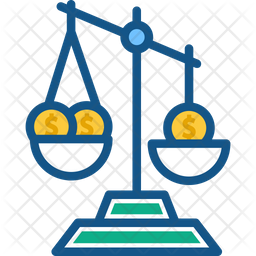Explain the concepts of SQL and its benefits on the cloud.
Introduction
SQL stands for Structured Query Language; it allows you to manipulate and access the database; in 1986, SQL became the standard of the ANSI(American National Standards Institute)
And in 1987, the ISO (International Organization for Standardization), there were different versions of SQL Language.
SQL is a standard language used for relational database management systems, some common relational database systems that use SQL are: Sybase, Microsoft, Oracle, Microsoft access and ingress, etc.
SQL developer offers the end-to-end development of PL/SQL applications and the worksheet for running the scripts and queries; it is not a case-sensitive language.
What is SQL?
As we know, SQL stands for Structured Query Language. It is used in Relational database management with various functions like SELECT, UPDATE, CREATE, DROP, INSERT, and DELETE. You can use these commands to do almost everything we want to do in a database.
There are different frameworks of SQL, mainly MYSQL is used, as it is an open-source platform that provides facilities to SQL in managing the back-end data for web applications. Many companies, such as Facebook, Instagram, WhatsApp, etc., use SQL for back-end data processing and storage purposes.
When a query is written and rum in data processing, a query optimizer is used. Then the Query reaches the SQL server, and there it will be compiled in three phases which are-
• Parsing: Process to check the syntax
• Binding: Process to check the semantics of Query
• Optimization: Process to generate the query execution plan
SQL programming language is used by Data analytics and data science professionals. This language performs various functions like executing the Query against the database, inserting the records into an RDBMS, deleting records from a particular database, etc. it has different datasets like DDL(Data Definition Language), DML(Data Manipulation Language), DCL(Data Control Language).
Different uses of SQL.
There are different uses of SQL that one can use to improve the performance of their digital presence. The structure query language is used in different forms, which are as follows.
• DQL - It stands for Data Query Language, used to retrieve the data from the given database.
• DDL - Stands for Data Definition Language used to create and modify the objects if the database,
Ex- CREATE, DROP, COMMENT, RENAME, TRUNCATE and ALTER.
• DML - It stands for Data Manipulation Language, used for the updation like modifying, deleting, and storing data in the database. Ex- DELETE, INSERT, and UPDATE.
• DCL - It stands for Data Control Language, used to grant access to the data stored in the database. Ex- GRANT and REVOKE.
• Database Transaction Management
Used to maintain the transaction related to the database, the transaction has only two outputs, either its success or failure. Ex- TRANSACTION, COMMIT, ROLLBACK, AND SAVEPOINT.
• Triggers, Indexes, User-defined functions, Procedures, and others
These all functions are just used to make our work easy and fast to access as per the requirements.
• Reporting Purpose
We know that every project requires a report for the conclusion and information. Thus SQL queries are essential for fetching the data for the report purpose.
• Manual Analysis
In this, data is filtered out for the requirements and used for analysis to get the desired outcomes from the database.
• SQL with NTC hosting
SQL provides the ability to construct powerful websites, applications, and programs. The open-source insists on speed, scalability, and stability; the hosting solution is needed.
• SQL Join
This function combines the data from two sets of data; it consists of INNER JOIN, LEFT OUTER JOIN, RIGHT OUTER JOIN, and FULL OUTER JOIN.
• SQL Union
The result set of two or more SELECT statements is joined for a particular output.
• SQL Wildcards
It is used to replace or substitute any character in the string. Ex- ''_'' and ''%''.
''_'' is used to represent a single character, ''%'' represents zero, one, or more characters.
These are some of the applications of SQL that you can use to boost your website. Let'sLet's have a look at the benefits of SQL on the cloud.
Benefits of SQL on the cloud.
There are multiple benefits of SQL on a cloud that you can use to grow your businesses and apply efficient strategies. Here are some of the benefits of SQL on the cloud.
• Less Maintenance Cost - It'sIt's Fully managed and attributed; hence no maintenance is required, giving flexibility for framing strategies and improving the cloud applications.
• Ensures business continuity - Sql always ensures data backup; hence, it can retrieve the data and continue operations without interruptions.
• Ensures security and compliance- SQL provides firewall protection and data encryption, making it the secured RDBMS service with proper user authentication and user-controlled access.
• EASY- setup - It has an easy setup with the connection drivers and migration tools that enable the user to set the database app within a few minutes, which is new.
• Automated Tasks - SQL supports automatic task management so that you can focus on the management of the business requirements.
• Easy Integration- SQL Cloud provides easy access to the instances, and also it ensures the integration with the app engine and computer engine.
These are some of the benefits of SQL on the cloud. Let'sLet's have a look at the final thoughts.
Conclusions
We learned many benefits and uses of SQL over various operations and real-time work; SQL on the cloud provides many benefits to the RDBMS. Also, it helps analyze the data for the conclusions and proper functioning of a database in a precise manner.
A relational data may contain various unwanted data. Still, with the help of SQL, we can filter it and work efficiently as it is a user-friendly language with a vast number of editing features in the data for modification.




Comments
Post a Comment